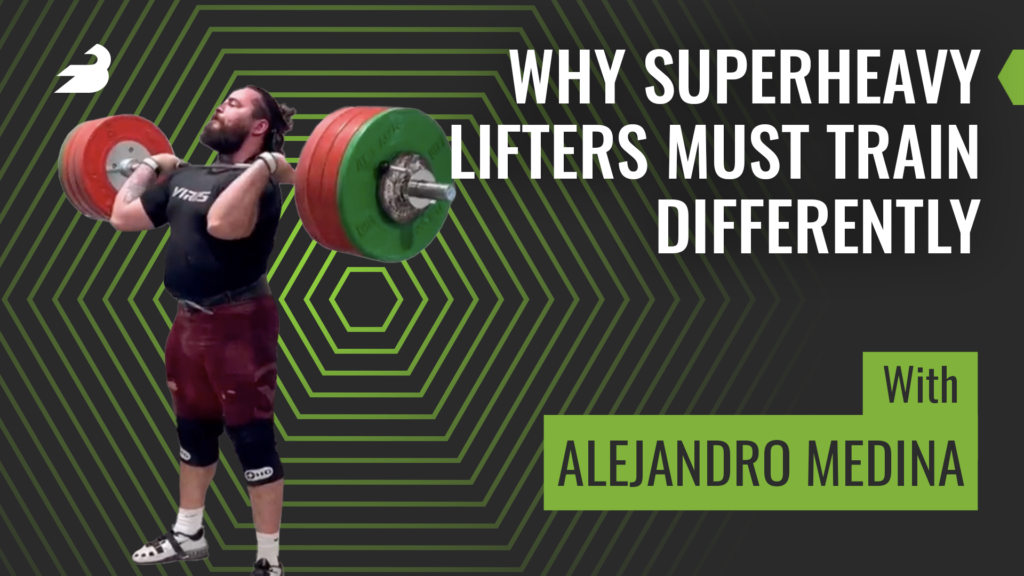I’ve seen the estimate a few times. You can get it to hang on a little bit with snatch. You could see it’s not the same, though. The ease isn’t the same. They’re diving under there and they’re barely…But dead right, they’re hitting the same kind of…You see it often.
Today I’m talking to 2022 Pan Am Medalist, 2022 National Champion, and 2020 American Open Champion in weightlifting Alejandro Medina. Alejandro is a former college football player who found weightlifting and has a wide experience across weight classes, and he currently competes as a superheavyweight. We talk about Alejandro’s unconventional first few years of training, along with what it’s really like to train in weightlifting’s heaviest bodyweight category. Spoiler alert: supers have to train much, much differently from most other weightlifters, and that’s a misunderstood topic even in some weightlifting circles. As one of America’s strongest weightlifters, Alejandro certainly has firsthand experience.
On this episode of The BarBend Podcast, host David Tao talks to Alejandro Medina about:
- Alejandro’s sports background (1:40)
- How Alejandro found weightlifting through his college roommate (3:30)
- Setting a new bodyweight PR (7:30)
- Why Alejandro decided to move up several weight classes (and how Olympic weight categories impacted that) (11:00)
- How superheavyweight athletes have to dial back volume while increasing intensity (13:30)
- The downsides of higher bodyweight categories (16:30)
- The issues with maintaining bodyweight (19:00)
- Upcoming competitions for Alejandro and Olympic qualification (22:00)
https://www.instagram.com/p/Cjv0cBVJFf8/
Relevant links and further reading:
